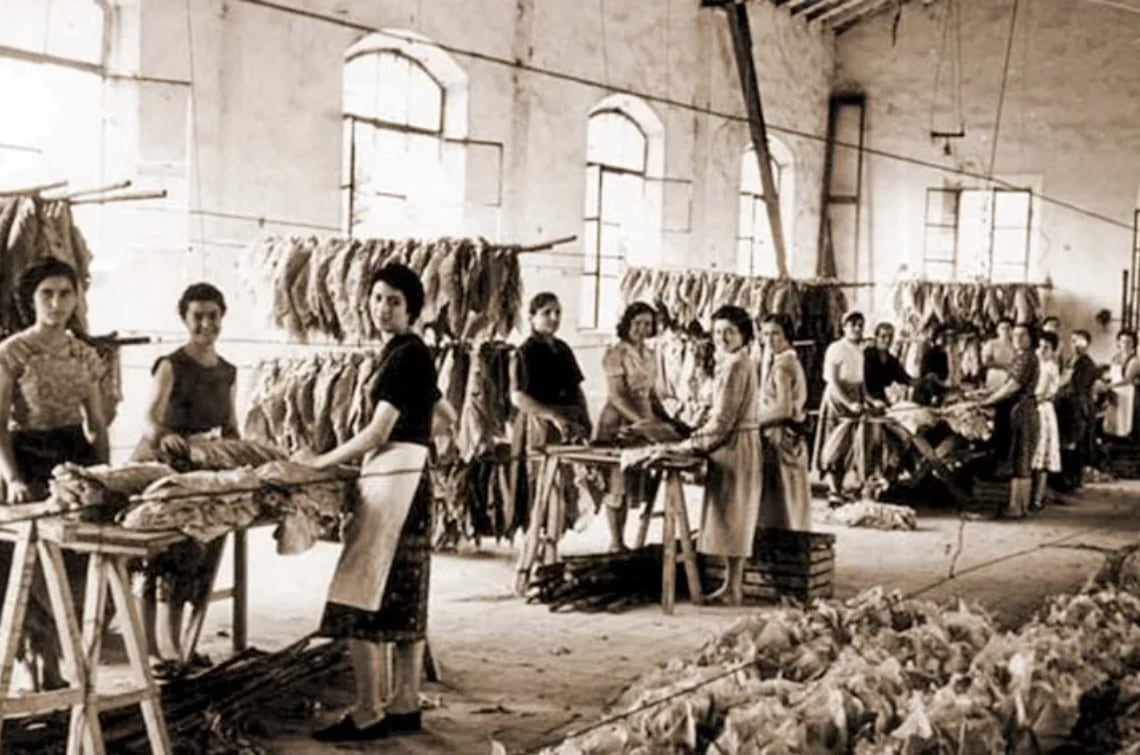Article index
The tobacconists of Salento a story that speaks of history and tradition
We went to the countryside with the sun and dried all the skin. When I met him, he didn't want me to me, because he said I was very ugly, all the faces was cooked, with bubbles in faces. We were always with the handkerchief in the head and then for the sun it came to us just like a mask.
(Testimony taken from Memoirs of the earth
tales and songs of work and struggle of Salento, edited by Vincenzo Santoro).
In Salento, a land that was described as a backward place, far from any possible industrial development and where superstition and obscurantism did masters, in the early 1900s the cultivation of tobacco represented a very important source of sustenance for the families of the farmers . The work of collecting tobacco leaves was done above all by women, who spent a lot of time in the fields in the summer under the scorching sun. Children often also worked.
In addition to the effort that this work involved, women were often forced to suffer physical and psychological violence.
 The work of the Salento tobacconists was closely linked to the phenomenon of tarantism , a form of hysteria that in popular tradition was the consequence of the bite of a spider, the Taranta, which nestled in the fields.
The work of the Salento tobacconists was closely linked to the phenomenon of tarantism , a form of hysteria that in popular tradition was the consequence of the bite of a spider, the Taranta, which nestled in the fields.
The effect of the bite often caused women a general malaise, depression, pains and forms of delusion, which resulted in attitudes of neurosis and loss of control.
The traditional "cure" consisted in a sort of musical exorcism: some musicians were summoned who induced a state of trance in the woman affected by the bite that degenerated into a frenetic dance. Often the "tarantate" dressed in the colors that characterized the spider from which it had been pinched, or yellow or red ribbons were offered, depending on the color of the spider. Dance could last days, until the woman was freed from the evil from which she was possessed.
To make it crack or slap the Taranta, above all it was necessary to mimic the dance of the small spider, that is, the tarantella. That is, it was necessary to dance with the spider, to be indeed the same spider who dance, according to an irresistible identification.
(Ernesto de Martino- La Terra del Remorse)
In reality, with these behaviors, women vented their anger for a life condition that constantly obliged them to marginalize and solitude.
The Church attempted to Christianize the phenomenon, establishing a saint protector, Saint Paul of Galatina, in the homonymous place of worship, where women went on a pilgrimage to drink and wash at the Blessed source, thinking of freeing themselves in this way from the condition of "Tarantate " .
Often, however, they occurred not very edifying episodes, in which women let themselves go to obscene behaviors that could not be tolerated and therefore, over time, the church was deconsecrated and the well of the closed purification.
Fimmene Fimmene is the song of denunciation of the difficult life conditions of the tobacconists of Salento, violence and exploitation.
Lyrics of the song
Fimmene fimmene ca sciati hallu tabaccu
in sciati doi and turned quattru.
Bu bo the tice cu chiantati lu tabaccu
lu sule is strong and you lu sicca tutt.
Fimmene fimmene ca sciati to vindimiare
and suct lu ceppune bon it facilitates.
And Santu Paulu Miu de Galatina
Fammende Cuntetà is a lordship.
And Santu Paulu Miu de le Tarante
Pizzachi Le Cartus to Mmienzu alla.
And Santu Paulu Miu de li scurzuni
pizzachi li carusi to the Cujuni.
Women women who go to tobacco
go in two and return to four.
Those who tell you to plant tobacco
the sun is strong and dry it all.
Women who are going to harvest
and under the vineyard you make you do it.
St. Paul of Galatina
make the grace to this young lady.
San Paolo Mio delle Tarante
pinches the girls in the middle of the legs.
Saint Paul of my snakes
pinches the males among the balls.
Read also the article: The singing of the Filande: mama mi mi sun stove








